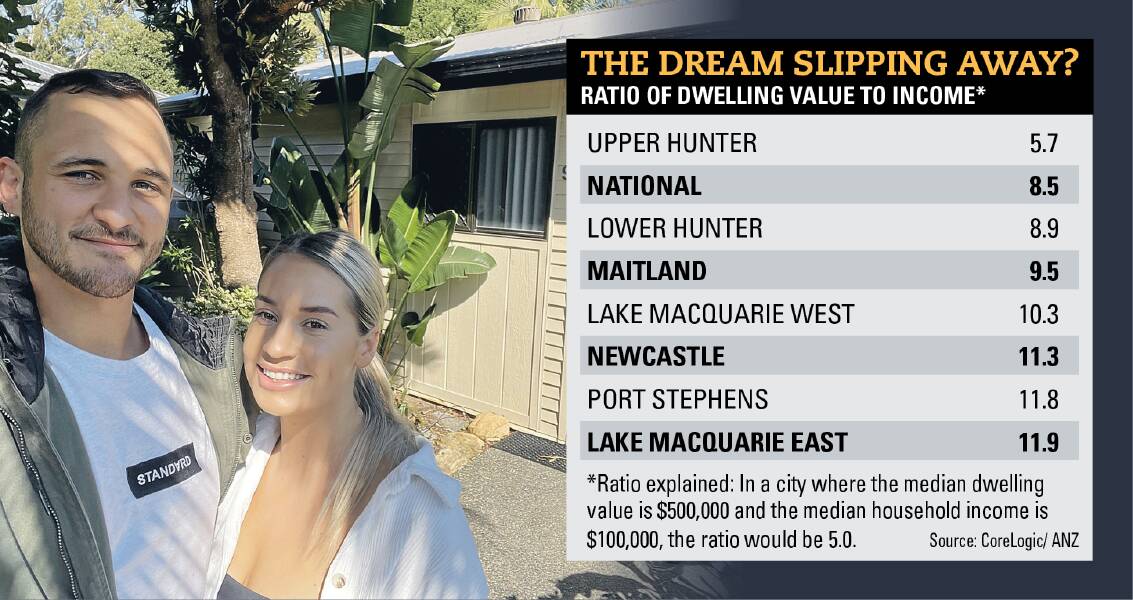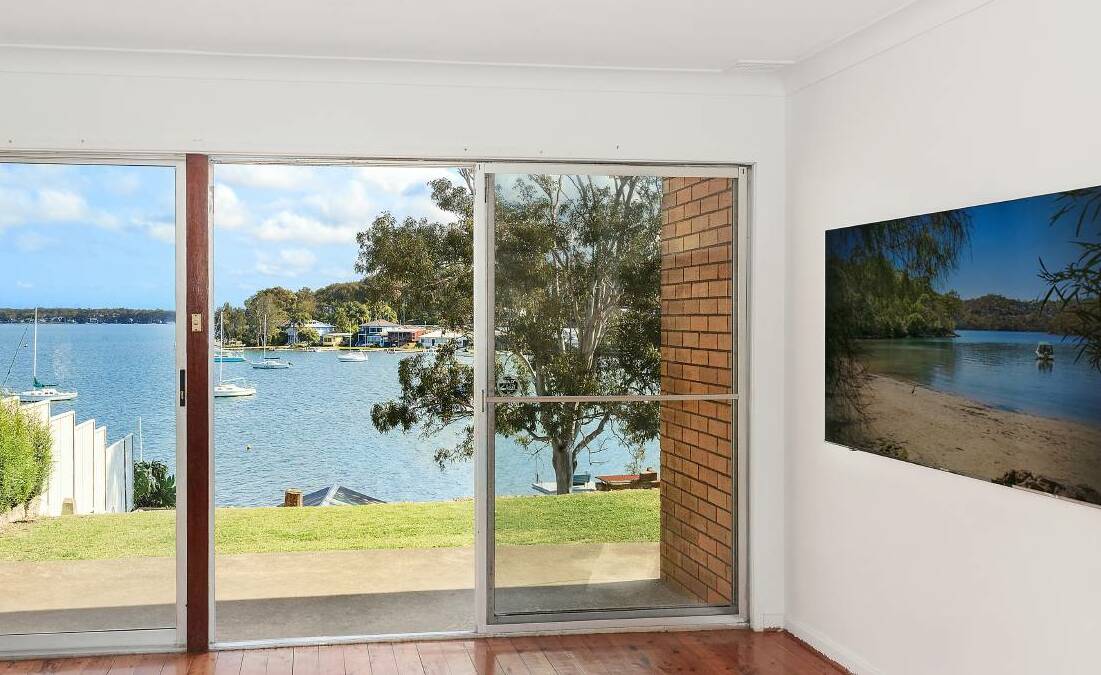
A new housing affordability report has shone a spotlight on the pressures facing Newcastle homeowners.
The ANZ and CoreLogic report analyses four key measures of affordability, all of which have skyrocketed in the two years between March 2020 and March 2022.
Perhaps most alarming is the declining affordability of houses in Lake Macquarie East, where the ratio of dwelling value to household income has risen by 52 per cent (7.8 to 11.9).
The ratio, which is calculated by dividing an area's median dwelling value by its median household income, also rose significantly in Newcastle (8 to 11.3) and Lake Macquarie West (7.4 to 10.3).
By comparison, regional Australia's ratio sits at just 7.9, and Greater Sydney's at 10.6.
RELATED: Record $7.6m paid for 100-year-old cottage in Port Stephens
Property windfall: 99 per cent of Newcastle homes selling for a profit
What interest rate rises will cost homeowners in Newcastle
The report also calculated that Australian first home buyers would need a record high of 11.4 years to save a 20 per cent deposit, assuming buyers saved 15 per cent of their income per year.
In Newcastle, it is estimated first home buyers would need 15 years to save a 20 per cent deposit in the current market, up from 10.6 years two years ago.
Buyers in Lake Macquarie East would need even longer (15.9 years, up from 10.4 years in 2020) and Lake Macquarie West buyers slightly shorter (13.7 years).

Newcastle residents Georgia Wiebe and Andrew Pritchard are no strangers to the challenges of buying into Newcastle's booming property market.
Needing a 10 per cent deposit to enter the market, the couple had been renting in Newcastle for about two years before staying with Ms Wiebe's parents to save for a house.
They accumulated their deposit quite quickly - "it only took us a year" - and found their new home in four weeks with Henderson Buyers Agency's Jack Henderson.
But it hasn't come easy.
"We've just been working so much, we barely have any days off," said Ms Wiebe, a registered nurse.
"Andy has every second Saturday and Sunday off and that's it, so we're just working every day to save to get into the house."
They are hopeful of moving into their New Lambton property as soon as possible, and will renovate the house "straight away".
Ms Wiebe said she and her partner had been happy to slog it out to buy into a central suburb.
"We wanted to be in a nice area," Ms Wiebe said.
"We didn't want to move out of Newcastle to be able to afford it, we wanted to stay here."

The report found an uptick in tree-changers taking advantage of flexible working policies to move to the regions was a key reason for growing unaffordability.
With capital city incomes an estimated 32.6 per cent higher than those in the regions, according to ABS data, the report authors said that these buyers enjoyed a considerable affordability advantage over existing regional residents.
"While this [flexible working trend] has created opportunities for remote knowledge workers to consider relatively affordable housing options, it also has the potential to increase price pressures for long-established residents in the regions," they wrote.
The median regional property price is only six times a capital city household income, compared to 8.4 times for median capital city values, meaning regional housing represented significant affordability advantages for buyers who were able to relocate without losing their jobs.
"There is a segment of the workforce that never have to go to the office and so for them, looking [at housing], they are earning perhaps capital city wages but that they could maybe move to a region and live there," said ANZ senior economist, Felicity Emmett.
"It does make it relatively very affordable to move to the regions and that is crowding out some of these longer standing residents in the regional areas."

Real Estate Institute of NSW chief executive Tim McKibbin said the influx from capital cities to regional areas had the potential to create issues.
"There's going to be some people who are not as well remunerated that are getting pushed out of areas and that in itself is a problem," he said.
"If you have an expectation that you're going to receive some services from a particular part of the economy only to find that there's nobody that can live in the area that can work in those jobs ... that's a problem for the community and we are seeing a bit of that."
Newcastle and Lake Macquarie's median house price has risen about $300,000 in the past 18 months, hitting a record high of $914,000 this month.







